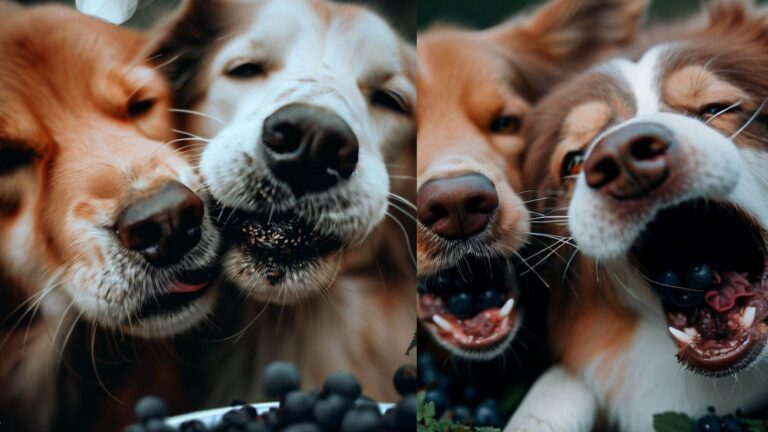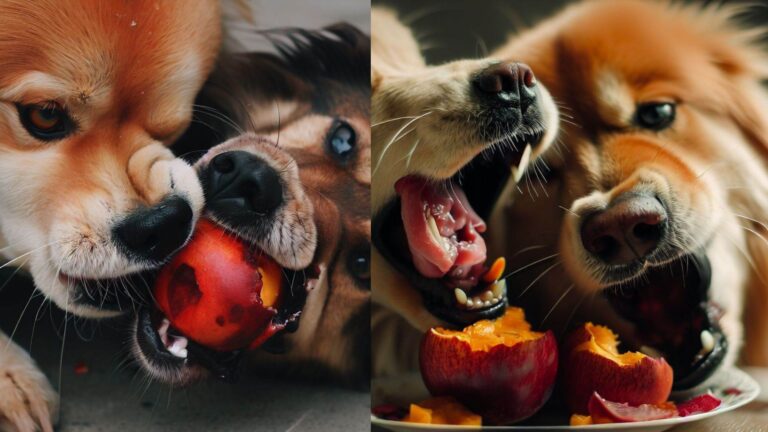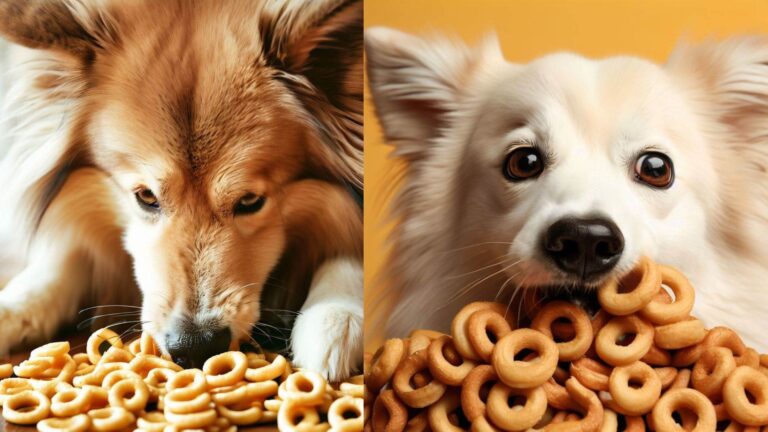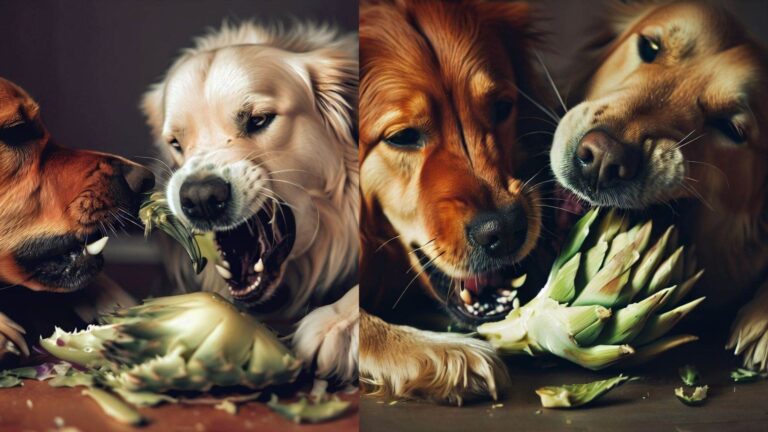Bacon is a popular food item among humans, and it’s no surprise that many dog owners wonder if they can share this treat with their furry friends. However, the question of whether dogs can eat bacon is not a straightforward one, as there are several factors to consider before giving your dog this delicious but potentially risky food.
In this blog, we will discuss the nutritional value of bacon, its potential health benefits and risks, and the circumstances under which you can safely give bacon to your dog.
Table of Contents
Nutritional Value Of Bacon
Bacon is primarily composed of fat and protein, with a high concentration of salt and cholesterol. While some types of bacon may contain vitamins and minerals, such as vitamin B12 and zinc, these nutrients are not present in significant quantities to provide any substantial health benefits.
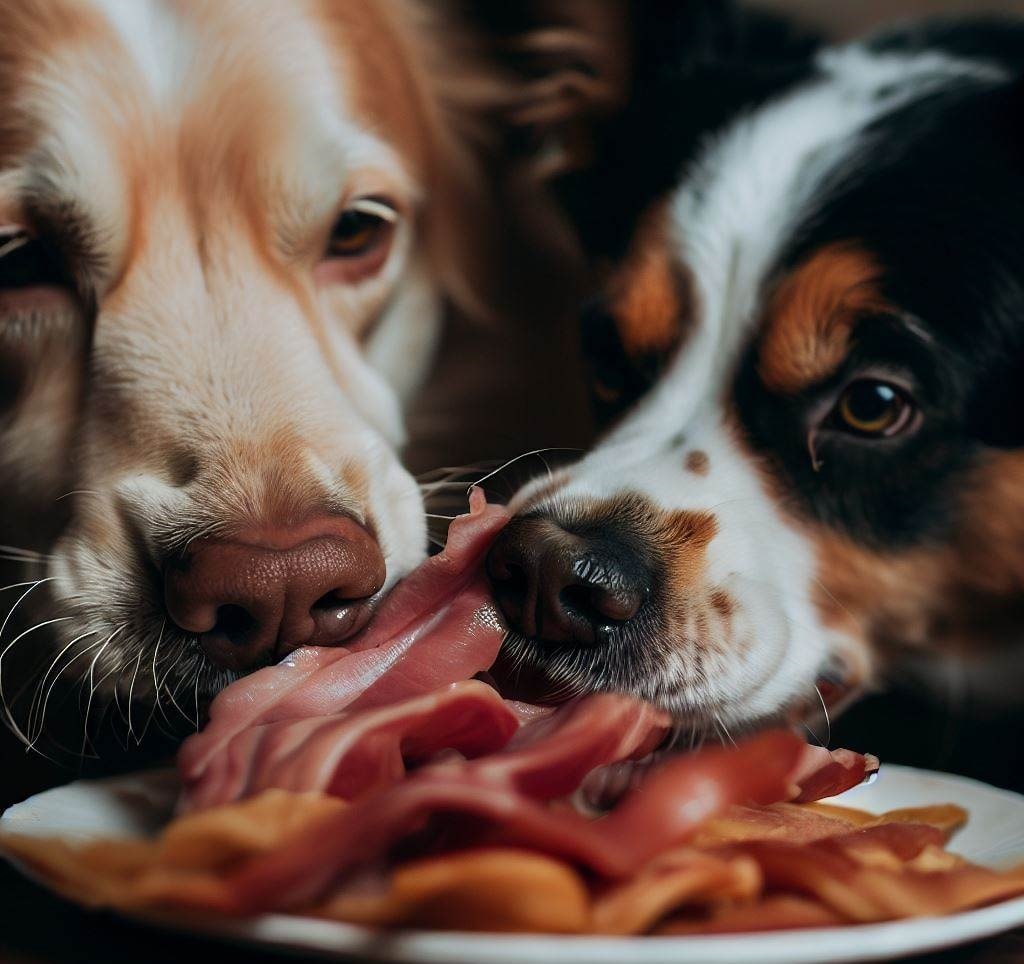
Potential Health Benefits Of Bacon For Dogs
While bacon is not a nutrient-dense food, it can provide a small amount of protein to dogs. Protein is essential for building and maintaining muscle mass, skin, and hair, so incorporating a small amount of bacon into a well-balanced diet could be beneficial for dogs.
Potential Health Risks Of Bacon For Dogs
The high-fat content in bacon is a significant concern for dogs, as consuming too much fat can lead to digestive issues such as diarrhea and vomiting. Additionally, the high concentration of salt and nitrates found in bacon can lead to dehydration, electrolyte imbalances, and other health issues, especially if consumed in large quantities.
Furthermore, eating bacon can increase the risk of developing pancreatitis in dogs. Pancreatitis is a condition where the pancreas becomes inflamed, leading to abdominal pain, vomiting, and loss of appetite. This condition can be severe and potentially life-threatening, requiring immediate veterinary attention.
When Is It Safe To Give Your Dog Bacon?
While bacon should not be a regular part of your dog’s diet, giving your dog a small amount of bacon as an occasional treat can be safe. If you choose to give your dog bacon, make sure it is cooked thoroughly, and avoid giving them bacon seasoned with salt, pepper, or other spices.
Additionally, it’s essential to keep in mind your dog’s overall health status and dietary needs. If your dog has a history of digestive issues, obesity, or other health concerns, it’s best to avoid giving them bacon altogether.
Read More: Can Dogs Eat Cabbage?
FAQs
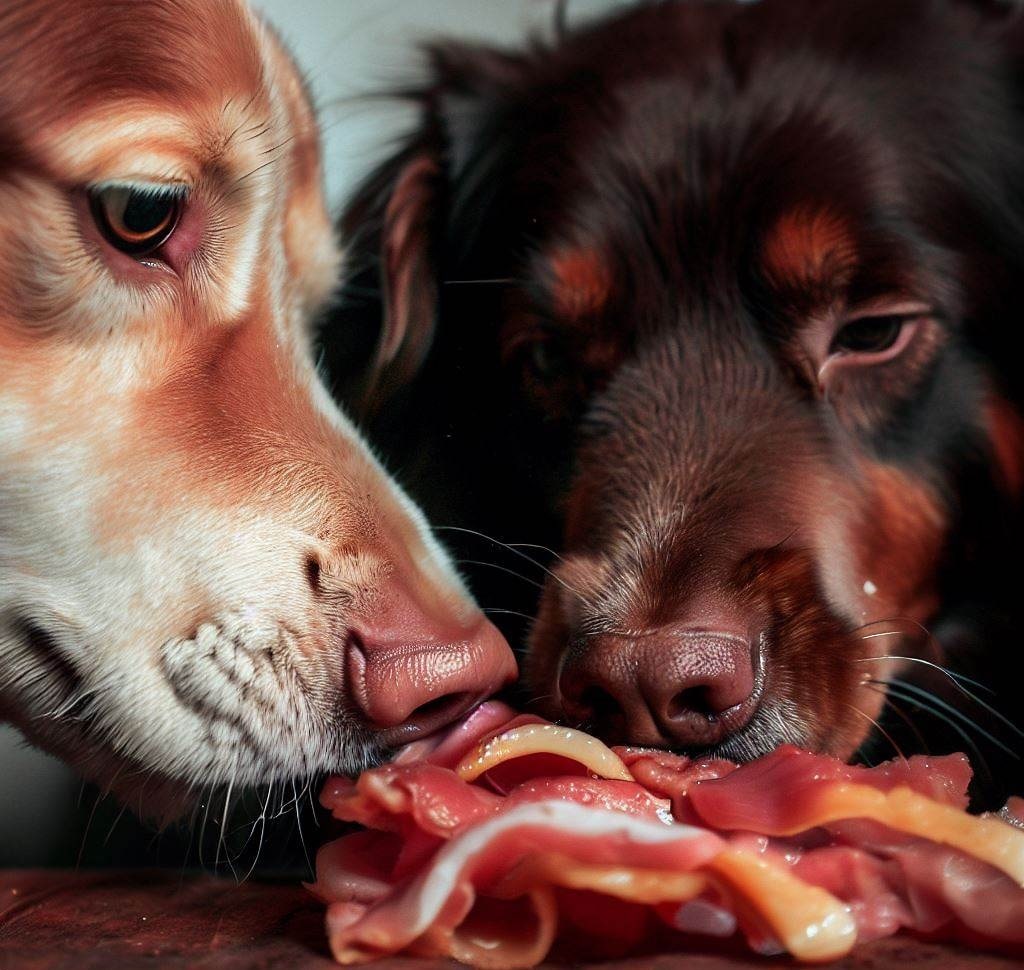
Is bacon safe for dogs to eat?
Bacon can be safe for dogs to eat in moderation, but it is not nutritionally balanced and should not be a regular part of their diet.
What are the health risks associated with dogs eating bacon?
The high fat, salt, and nitrate content in bacon can cause digestive issues, dehydration, and even pancreatitis in dogs.
Can dogs eat raw bacon?
No, dogs should not eat raw bacon as it increases the risk of bacterial infections, such as Salmonella and E. coli.
Can bacon grease be given to dogs?
No, dogs should not be given bacon grease as it is high in fat and can cause digestive issues.
How much bacon can I give my dog?
A small amount of bacon as a treat is usually safe for dogs, but it’s best to limit it to no more than one or two small pieces.
Can puppies eat bacon?
Puppies can eat a small amount of cooked, plain bacon as an occasional treat, but it is not recommended as a regular part of their diet.
Can dogs with pancreatitis eat bacon?
No, dogs with pancreatitis should not eat bacon, as it can exacerbate the condition.
Can bacon cause allergies in dogs?
Yes, dogs can develop allergies to bacon, just like any other food item.
Are there any types of bacon that are safer for dogs to eat?
Bacon, which is low in sodium, fat, and nitrates, and is free of seasonings, is generally safer for dogs to eat.
Can dogs eat turkey bacon?
Turkey bacon is generally a safer option for dogs than traditional pork bacon, but it should still be given in moderation and cooked thoroughly.
Can dogs eat bacon and eggs?
While a small amount of plain cooked bacon and eggs may be safe for dogs to eat, making it a regular part of their diet is not recommended.
Can dogs eat bacon rind?
Bacon rind, or the fatty part of bacon, is not recommended for dogs to eat as it can cause digestive issues and even pancreatitis.
Can dogs eat bacon and sausage?
It’s not recommended to give dogs bacon and sausage as both are high in fat, salt, and seasonings, which can cause health issues for dogs.
Conclusion
In conclusion, while dogs can technically eat bacon, it’s essential to consider the potential health risks and benefits before adding this food to their diet. If you choose to give your dog bacon, do so in moderation, and make sure it is cooked thoroughly and seasoned with minimal salt and other spices. However, it’s generally best to stick to more nutrient-dense foods to ensure your dog’s health and well-being.

